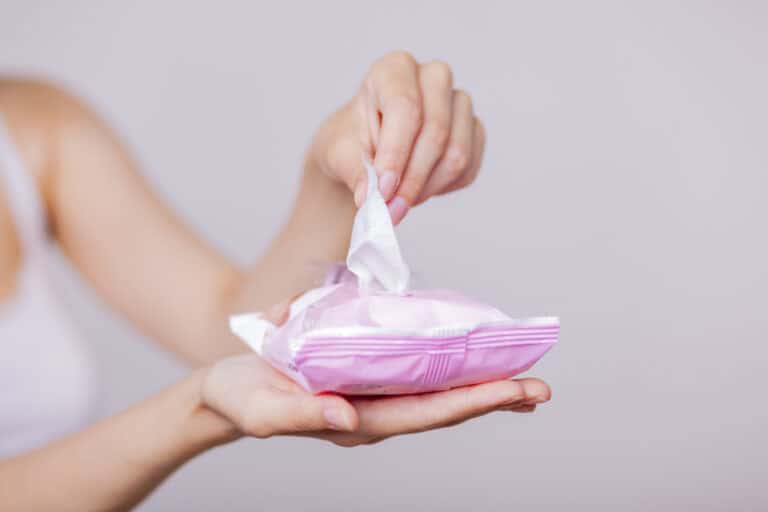10 Must-Know Beauty Tips For Oily Skin

Oily skin is a common skin condition that affects millions of people worldwide.
It occurs when the sebaceous glands in the skin produce excess oil, known as sebum.
While having oily skin may seem like a never-ending battle, there are ways to manage and even control it.
10 Must-Know Beauty Tips for Oily Skin
1. Cleanse your face twice a day

Cleansing your face twice a day is fundamental in managing oily skin.
It helps to remove excess oil, dirt, and impurities that can accumulate throughout the day.
When selecting a cleanser, it’s important to choose one that is specifically designed for oily skin.
These cleansers are formulated to deeply clean the pores without stripping the skin of its natural oils, which can trigger the overproduction of sebum.
Always remember to cleanse in the morning and in the evening, and after any heavy sweating.
As a word of caution, avoid over-washing as it can lead to dryness and irritation.
2. Use a toner

Incorporating a toner into your skincare routine is a crucial step for managing oily skin.
Toners, especially those with astringent properties, can help tighten the pores and reduce the production of sebum.
They also balance the skin’s pH levels, improve skin texture, and remove any remaining traces of makeup or cleanser.
Always apply toner after cleansing and before moisturizing.
Some recommended ingredients in toners for oily skin include witch hazel, salicylic acid, and glycolic acid.
Remember to avoid toners that contain alcohol as they can dry out your skin and trigger more oil production.
3. Exfoliate regularly

Exfoliating your skin is essential in removing dead skin cells, unclogging pores, and preventing acne.
For oily skin, it’s recommended to exfoliate at least twice a week.
Look for chemical exfoliants such as AHAs or BHAs that can penetrate deep into the pores and dissolve excess sebum.
Avoid physical exfoliants like scrubs or brushes, as they can irritate the skin and cause more oil production.
4. Use oil-free and non-comedogenic products

When purchasing skincare or makeup products, always look for ones that are labeled as “oil-free” and “non-comedogenic”.
Oil-free products won’t add any more grease to your skin, while non-comedogenic products are specifically designed not to clog pores.
This is important because clogged pores can lead to breakouts and worsen oily skin.
Additionally, avoid heavy or thick creams and opt for lightweight gel or water-based moisturizers instead.
5. Incorporate a clay mask into your routine

Incorporating a clay mask into your skincare routine can substantially assist in regulating oil production and detoxifying your skin.
Clay masks are known for their ability to absorb excess sebum and draw out impurities from the pores, leaving the skin clean, refreshed, and less oily.
They also offer mild exfoliation, helping to remove dead skin cells and promote a healthy, glowing complexion.
It is recommended to use a clay mask once or twice per week, after cleansing and before moisturizing.
Look for clay masks that contain kaolin or bentonite, which are particularly effective for oily skin.
Be sure to follow the mask with a good moisturizer, to prevent the skin from drying out.
6. Don’t skip moisturizer

One common misperception is that moisturizers are not necessary for oily skin.
Contrary to this belief, it is crucial to moisturize even if you have oily skin.
Skipping moisturizer can actually signal your sebaceous glands to produce more oil to compensate for the lack of moisture.
It’s key to find the right moisturizer that hydrates your skin without making it feel oily.
Go for oil-free, lightweight, and non-comedogenic moisturizers that provide the hydration your skin needs without clogging your pores or adding extra shine.
7. Use blotting papers throughout the day

Blotting papers are a great tool to keep on hand for managing oiliness throughout the day.
These thin, absorbent papers are designed to soak up excess oil on the skin’s surface without smudging makeup or causing irritation.
They provide an instant solution for a shiny T-zone or oily forehead, leaving your skin looking fresh and matte.
Instead of rubbing, simply press the blotting paper against your skin, and it will absorb the excess oil.
This method is much better than frequently washing your face, which can strip your skin of its natural oils and cause it to produce even more sebum in response.
Keep a pack of blotting papers in your bag for quick touch-ups during the day.
8. Opt for powder-based makeup

Opting for powder-based makeup products can significantly help in managing oily skin.
Powder-based products, unlike their liquid or cream counterparts, are less likely to clog pores or contribute to excess oil.
They sit lightly on your skin, minimizing shine and giving a matte finish.
Particularly, mineral makeup is an excellent choice for oily skin due to its natural, non-comedogenic properties.
When applying makeup, start with a primer to create a smooth base, and finish with a setting powder to ensure the makeup stays in place throughout the day.
Always remember to remove your makeup thoroughly before going to bed to prevent clogged pores.
9. Watch your diet

While skincare products play a significant role in managing oily skin, what you put into your body can also affect the condition of your skin.
Eating foods high in sugar and unhealthy fats can cause your sebaceous glands to produce more oil.
On the other hand, a balanced and clean diet rich in fruits, vegetables, and healthy fats can help regulate your skin’s oil production.
Additionally, drinking enough water is crucial for maintaining hydrated and healthy skin.
Aim for at least eight glasses of water per day to flush out toxins and prevent dryness.
10. Manage stress levels

Stress can have a direct impact on our skin, particularly for those with oily skin.
When we are stressed, our body produces more cortisol, a hormone that stimulates the production of sebum.
This can lead to breakouts and worsen oily skin.
To manage stress levels, find ways to relax and unwind such as exercise, meditation, or spending time with loved ones.
Taking care of your mental health can have positive effects on your skin’s overall health and appearance.
Conclusion
Oily skin can be challenging to manage, but with the right skincare routine and lifestyle choices, you can keep it under control.
Remember to cleanse, tone, and moisturize regularly using products specifically designed for oily skin.
Exfoliate twice a week, use oil-free and non-comedogenic products, and incorporate clay masks into your routine.
Don’t forget to watch your diet, manage stress levels, and use blotting papers for quick touch-ups during the day.






